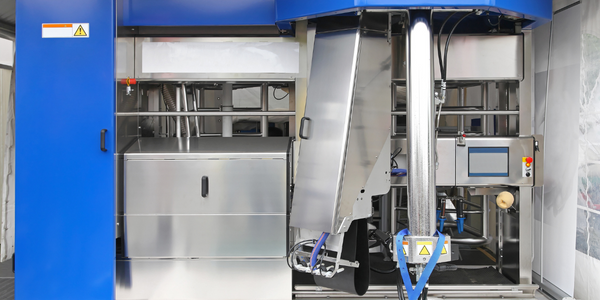Syngenta & Benchling: Driving faster seed and agricultural development at a global scale
公司规模
Large Corporate
地区
- Europe
- America
- Asia
国家
- Switzerland
- Argentina
- Brazil
- China
- United States
产品
- Benchling
技术栈
- Cloud Computing
- Data Management
实施规模
- Enterprise-wide Deployment
影响指标
- Productivity Improvements
- Digital Expertise
- Innovation Output
技术
- 平台即服务 (PaaS) - 数据管理平台
- 基础设施即服务 (IaaS) - 云计算
适用行业
- 农业
适用功能
- 产品研发
- 质量保证
用例
- 协作机器人
- 预测性维护
- 供应链可见性(SCV)
服务
- 云规划/设计/实施服务
- 数据科学服务
关于客户
Syngenta is an innovation powerhouse in seeds and agricultural products, with teams in over 90 countries. Their R&D focuses on designing seeds with desirable genetics that require fewer inputs—land, water, pesticides, nutrients— while producing great outputs. Growers depend on Syngenta for hardier, higher quality crops as geographies of fungal and bacterial diseases shift, climates fluctuate to more extremes, and the demand to feed the global population grows. Syngenta has maintained its position as a global leader in agricultural science and technology, particularly in seeds and crop protection products, by cultivating innovation. One of the strengths that drives this culture of innovation is diversity throughout the company. Syngenta benefits from a diversity of roles, from regulators to molecular scientists, as well as a diversity of geographies, leading to differing climates, conditions, tool availability, and cultural norms. Another key aspect to Syngenta’s success is scale. Researchers are able to test hundreds of thousands of products at a time, share with labs, greenhouses, and regulatory agencies in many countries, and create a stock that can be distributed globally.
挑战
Syngenta, a global leader in agricultural science and technology, faced several challenges. One of the main challenges was balancing customization and standardization. Syngenta wanted standardized data for cross-company analysis, but each department had its own preferences and needs for recording and recalling data. Another challenge was collaboration across the globe. Handoffs between different geographies, languages, time zones, and areas of expertise while using paper records led to bottlenecks. Lastly, managing many regulatory requirements was a challenge. Different countries maintain complex, shifting regulatory requirements around product safety that all need to be met.
解决方案
Syngenta invested in Benchling to capture the strength of all the different people working together to bring new seeds to fruition while also enabling different roles at Syngenta to collaborate more cohesively–both internally and with regulatory agencies around the world. Benchling offers a lot of flexibility to suit individual working preferences and surface role-relevant information. Teams can take advantage of Benchling’s codeless configuration to easily model their specific workflows. Such customization allows different users to interact with Benchling intuitively and efficiently, while tracking information seamlessly through the entire lifecycle of a product. Furthermore, sharing information in real-time makes it easier to run activities concurrently in different locations. A research team in Beijing can use results from an experiment conducted the day before in North Carolina, and share next steps with field teams in Idaho and Argentina to run parallel experiments on the ground. Benchling’s Validated Cloud provides a solution with the rigor and security necessary for recording requisite data and demonstrating continued efficacy and safety in Syngenta’s products.
运营影响
数量效益

Case Study missing?
Start adding your own!
Register with your work email and create a new case study profile for your business.
相关案例.
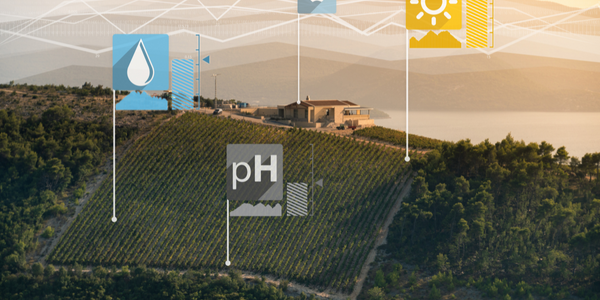
Case Study
Intelligent Farming with ThingWorx Analytics
Z Farms was facing three challenges: costly irrigation systems with water as a limited resource, narrow optimal ranges of soil moisture for growth with difficult maintenance and farm operators could not simply turn on irrigation systems like a faucet.
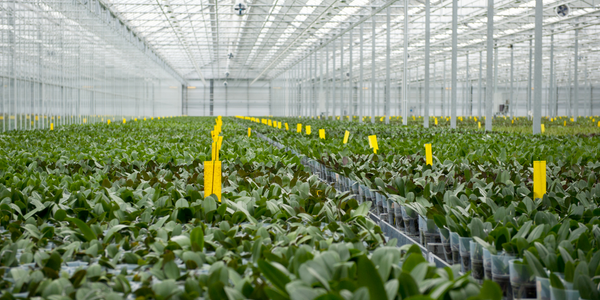
Case Study
Greenhouse Intelligent Monitoring and Control Solution
Farming Orchids is the most successful form of precision farming in Taiwan, and also the most exported flower. Orchids need a specific temperature and humidity conditions to grow and bloom, and its flowering time may not be in line with market demands, so the price collapses when there is overproduction. Therefore, some farmers began to import automated greenhouse control systems for breeding and forcing, which not only improves quality, but also effectively controls the production period and yield to ensure revenue. In 2012, an orchid farmer built a Forcing Greenhouse of about 200 pings (approximately 661 Square Meters) in Tainan, Taiwan. The system integrator adopted Advantech’s APAX-5000 series programmable automation controllers to build the control platform, coupled with Advantech WebAccess HMI/SCADA software, to achieve cloud monitoring. The staff of the orchid field can monitor important data anytime via smart phone, iPad, and other handheld devices, and control the growth and flowering conditions. System requirements: In the past, most environmental control systems of orchid greenhouses in Taiwan used PLCs (Programmable Logic Controller) with poorscalability and control, and could not be connected to the Internet formonitoring from the cloud. For advanced database analysis and networking capability, the PC platform must be adopted. Therefore, PAC Systems (Programmable Automation Controller) with both PLC programming capabilities andPC functions is a better choice.The environmental control of the Orchid greenhouse switches on and off devices like fan, shade net, cooling/heat pump, liquid flow control, water-cooling wall etc. It is controlled by a control panel of electric controllers, and is driven by a motor, to adjust the greenhouse temperature, humidity, and other environmental conditions to the set parameters.
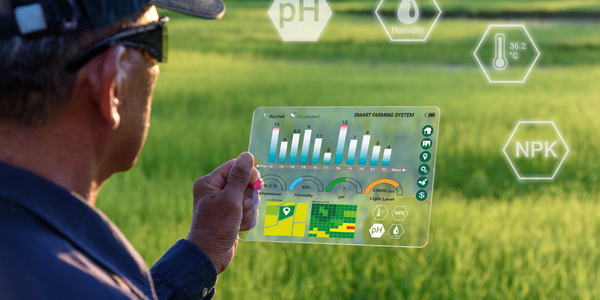
Case Study
Enabling Internet of Things Innovation in Agriculture
DigiBale, wanted to apply technology know-how and IP from implementations successfully to more agriculture sectors including cotton, forestry, sugarcane and cattle. However, farmers and growers still have worries about the connected technology.
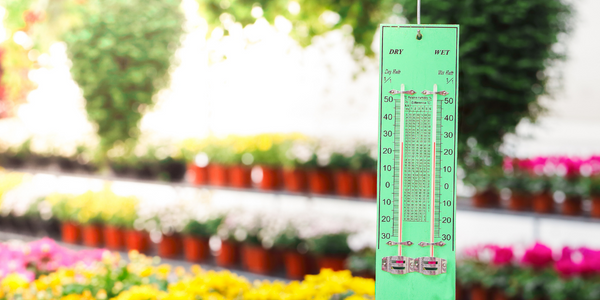
Case Study
Precision beekeeping with wireless temperature monitoring
Honeybees are insects of large economic value and provide a vital service to agriculture by pollinating a variety of crops. In addition, bees provide us with valuable products such as honey, beeswax, propolis, bee venom, etc. Monitoring of honeybee colony health, population, productivity, and environmental conditions affecting the colony health have always been exceedingly difficult tasks in apiculture. Research has shown that even small deviations (by more than 2°C) from the optimal temperatures have a significant influence on the development of the brood and the health of adult bees.



